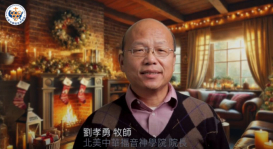The latest trade meeting of 149 nations to help developing nations emerge from poverty ended in a step forward, with many of the details left to be resolved until next year.
"The progress made today really lays the groundwork for negotiations going forward," said Susan Schwab, a deputy U.S. trade representative, according to the Associate Press.
Under pressure, richer and poorer countries tentatively agreed to end trade-distorting farm export subsidies by 2013, while also mostly giving free access to the 32 poorest nations to send their products into richer ones.
Christian organizations had urged that richer nations end the practice of paying their own farmers when they export agricultural products. They said such practices make it difficult for poorer nations to compete.
The 2013 cutoff date for export subsidies is three years later than originally called for by poorer nations and there is still work to be done to solidify it.
"The declaration makes clear that the agreed date is conditional,” read a statement from the WTO. “Loopholes have to be plugged to avoid hidden export subsidies in credit, food aid and the sales of exporting state enterprises."
Sunday’s result was in contrast to 2003 in Cancun, Mexico, where the same nations ended in sharp disagreement, with poorer nations walking out on talks because they had felt their needs were being ignored.
"We've come a long way since Cancun, and this week reflected unprecedented cooperation between developed and developing countries," Schwab said.
One representative from Christian Aid – a UK-based charity and campaigner against poverty - said that one positive of the negotiations this time around was that a group of 110 developing nations had gelled together to improve their negotiating position to protect their interests.
"A minor but significant victory saw poor countries resist attempts to set limits on the number of crops that can have special protection to help poor farmers," said Dr. Claire Melamed a trade policy officer for Christian Aid.
In tightly contested negotiations between the United States and several West African nations, a clear decision was made to end cotton export subsidies for all developed countries in 2006. Top U.S. Trade negotiator Rob Portman said it would be difficult to get Congress to accept the deal, according to AP.
The decision was strongly opposed by The National Cotton Council of America business association, which felt the agreement was unfair. West African cotton producers from Chad, Burkina Faso, Mali and Benin had insisted such subsidies lowered prices so much that they could not compete, keeping many stuck in poverty.
One of the major results of the conference was that the poorest 32 countries will be allowed to send most of their products to rich nations’ markets with no duty or quota restrictions.
However the three percent of products excluded from the list includes textiles, a significant exemption where poorer nations are highly competitive with richer ones.
Bangladesh, which is listed among the least developed countries by the WTO, will continue to be charged high tariffs for sending its textiles to richer nations, who were not ready to give up their protection there, according to the International Confederation of Free Trade Unions.
The nations now will move to finish writing a clearly defined, overall trade agreement by the end of April 2006 when they meet in Geneva. The current round of negotiations began in 2001 in Doha, Qatar with the purpose of aiding the development of poor nations.




![[Exclusive Interview] A revelation within the brink of life and death — Meg Leung’s mission in Christian art](https://www.gospelherald.com/media/cache/thumbnail/7/21/72163sp_273w_150h_1x_1y.jpg)


